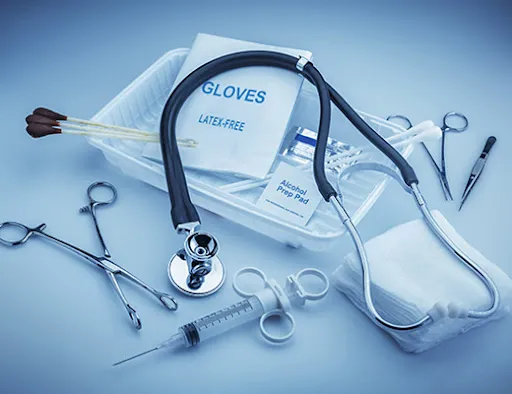The Federal Ministry of Health and Social Welfare (FMOH&SW) has launched the second phase of its initiative to strengthen Nigeria’s healthcare workforce by increasing medical students’ quota.
The Minister of State for Health and Social Welfare, Dr Tunji Alausa disclosed this on Monday in Abuja during the launch of the initiative, saying it is in alignment with President Bola Tinubu’s mission to enhance the healthcare workforce.
Alausa said that the president aimed to increase the number of medical students and improve the quality of medical education across the country.
He added that the initiative would enhance medical education and create new career opportunities for healthcare professionals in the country.
Doctors may also have opportunities to become professors, further enriching their careers, he said.
The minister noted that “the FMoH&SW is optimistic that this initiative will not only build capacity and address the “japa syndrome”, where Nigerian professionals seek opportunities abroad but will also increase access to quality healthcare.
“The ministry looks forward to continued collaboration with these institutions to achieve the nation’s healthcare goals.”
The FCT Mandate Secretary for Health and Environment, Dr Dolapo Fasawe said discussions during the launch centred around three private universities’ participation in Phase Two of the FMOH&SW’s initiative, which seeks to expand the quota of medical students in FCT.
She explained that “Phase one of the initiative, to be conducted in collaboration with the Lagos State Government and the LASUTH College of Medicine, is scheduled to begin in December 2024.
“It aims to increase the annual enrollment quota at LASUTH to approximately 2,000 medical students, in addition to several hundred students in pharmacy, dental and biomedical engineering.
“Phase Two extends this initiative to the Federal Capital Territory (FCT), where approximately 800 students from Baze University, Veritas University and Nile University will receive training in selected FCT General Hospitals.
“These universities are also expected to contribute financially to infrastructure development and equipment provision at the hospitals, ensuring they meet the necessary standards for training medical students.”
Fasawe said that applicants for the pilot programme would be admitted based on merit, and doctors at the selected General Hospitals would receive an honorarium for teaching.
She explained that interest in the initiative was already growing, with other states expressing eagerness to join.
She commended the leadership of the participating universities and expressed her excitement about the potential impact of the programme on Nigeria’s healthcare system.
NAN



